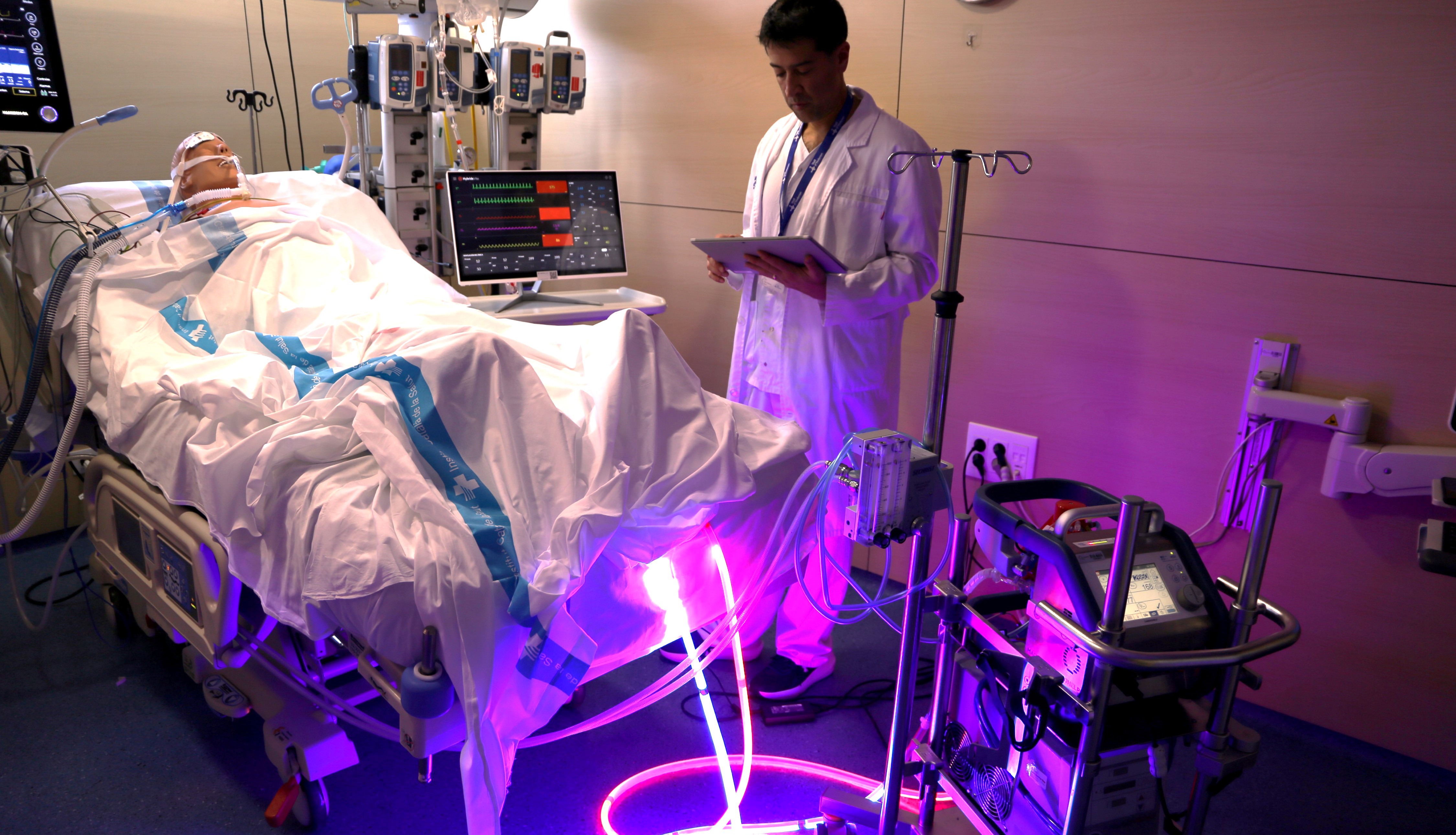An innovative simulator created in Val d’Hebron helps

Extracorporeal membrane oxygenation (ECMO) can provide cardiac or respiratory support as a last resort in very sick patients. This is a complex technique that is often associated with complications, and for this reason, having experienced specialists is key to success. In this context, Val d’Hebron and Medical Simulator have created the Hybrids VITA simulator, based on real clinical cases, to help with ECMO training. The device, a success story in the field of innovation in Val d’Hebron, is under the scientific direction of Dr. Jordi Riera, Director of the Adult ECMO Program at the University Hospital of Val d’Hebron and Principal Investigator of the Research Group on Shock, Organic Dysfunction and Resuscitation at the Research Institute Val d’Hebron (VHIR) and with the support of the VHIR Innovation Unit.
Hybrids VITA is a simulator that helps train healthcare professionals who will work with ECMO in their clinical practice, such as critical care, cardiology, cardiac surgery, anesthesiology, transplant coordination and nursing, in both pediatric and adult settings. The device, connected to an ECMO device, allows you to simulate clinical cases as close to reality as possible. “This is a unique opportunity to provide training on how to prevent, early diagnose and treat possible complications that can often be serious, such as bleeding, thrombosis or infection.”“, says Dr. Jordi Riera. “This is proof that innovation, in this case education, can have a direct impact on patients by improving the care they receive from professionals.”he adds.
To create Hybrids VITA, the team took into account previous clinical experience with the adaptation of real cases of patients being treated in the intensive care unit of Val d’Hebron, which represents a distinctive characteristic compared to other similar devices. In addition, both the design and clinical content of the simulator are adapted to the international reference society ELSO guidelines, so that the device is modeled based on the clinical context and scientific evidence. As an example, development elements related to respiratory support during the COVID-19 pandemic and then related to circulatory support following publications on cardiac and airway support (ECPR) were included.
The Hybrids VITA project began 6 years ago and has since included new features and clinical cases. Work is currently ongoing on its technological development, the inclusion of new clinical cases and the creation of a now accessible version of the virtual format. It was recently registered as a utility model.
Val d’Hebron now offers training courses using Hybrids VITA, such as the ECMOBARNA course, and other international centers have also begun to purchase the simulator. It is also used at congresses of international societies concerned with critically ill patients, such as the European Society of Intensive Care Medicine, which held its annual congress in Barcelona this year. Both at this congress and at other international events, the Hybrids VITA simulator is used for ECMO training.
Learn more about the Hybrids VITA simulator in this video (in Catalan).
Val d’Hebron, leading ECMO center
Val d’Hebron is a leading ECMO centre. From a healthcare perspective, we treat over 100 cases per year and have treated over 550 adult patients to date, with an average survival rate higher than the global average. On the research side, we are leading scientific networks of international collaboration to advance knowledge about this technique and develop guidelines with recommendations for its use. In addition, we play an active role in education, training sessions and innovation, such as the creation of Hybrids VITA, which is one of the leading ECMO training teams internationally.
